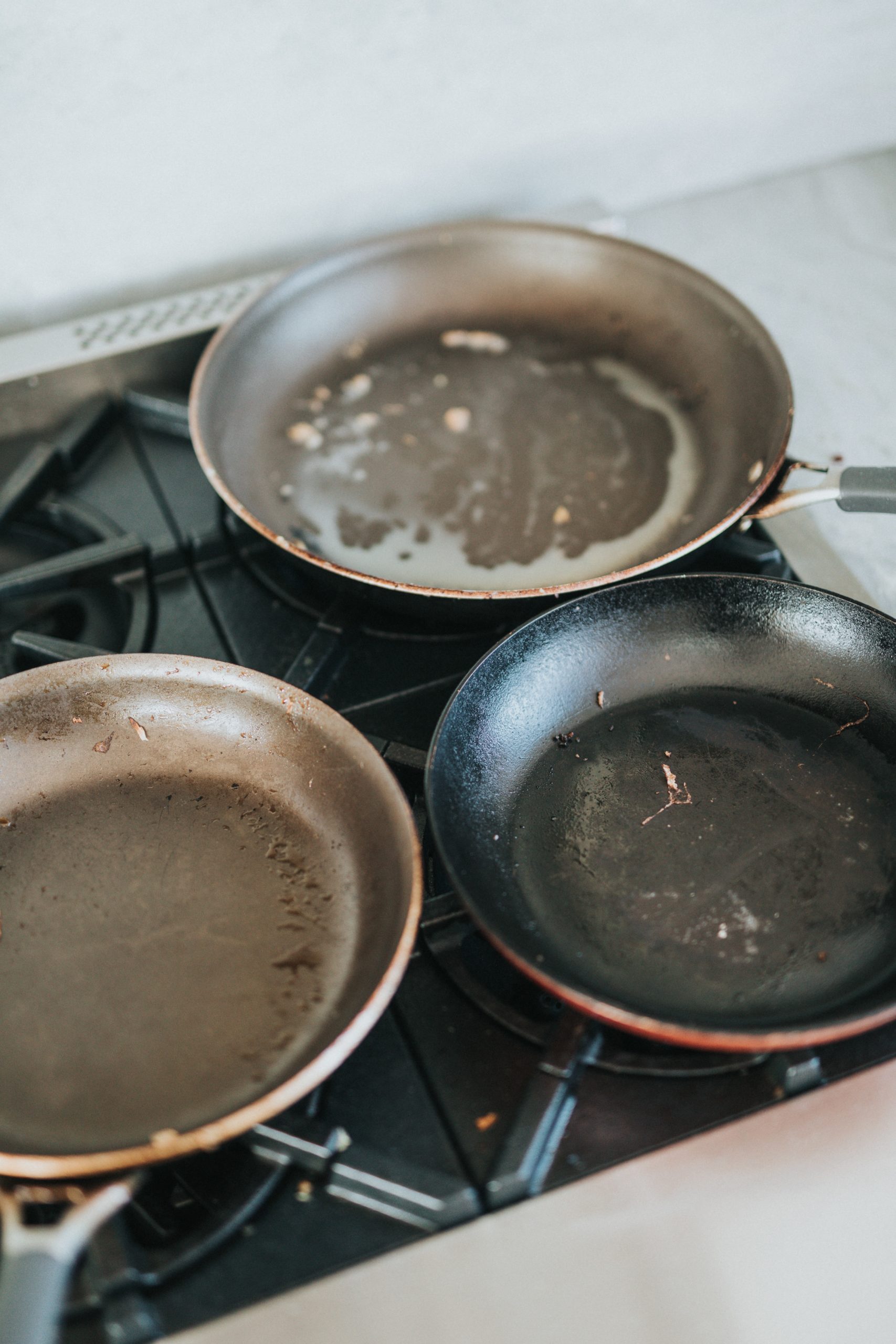
What is a Mechanical Soft Diet? Explanation, Preparation, and Meal Ideas
This article has been medically reviewed by Dr. Martin Duggan in 2021.
This content is not intended to be a substitute for professional medical advice, diagnosis, or treatment. Always seek the advice of your physician or another qualified health provider with any questions you may have regarding a medical condition.
As a caregiver, you may have been told that your loved one needs a mechanical soft diet. This type of diet can be a bit more work than preparing a typical meal, but with some good tips and recipes, you will get the hang of it in no time. Typically someone will transition to a mechanical soft diet because they have difficulty with chewing or swallowing. This transition may be a temporary change prescribed by a doctor, but some elders with dementia, cancer, or other long-term chronic or terminal illnesses may need to be on such diet permanently.
Changing a diet can often be difficult for older adults as well as the caregiver preparing the meals. However, with some knowledge, planning, and preparation you can ensure your loved one eats safely and nutritiously. You can even learn how to make their food delicious too!
What is a mechanical soft diet?
If your loved one has been prescribed a temporary or long-term mechanical soft diet, they will need to eat food that requires less chewing that still maintains excellent nutritional value.
“Mechanical” means making food softer and smaller so it is safer and easier to eat than solid food. It is done through the process of chopping, grinding, blending, whipping, or mashing. Having kitchen gadgets such as blenders, handheld blenders, food processors, a mesh strainer/sieve, or baby food grinders can make the job of softening foods easier – but you can use a fork and knife to mash and chop too.
Many foods can be softened by adding liquids such as gravy, tomato sauce, melted butter, oil, broth, milk, or water. For example, mashed potatoes can be eaten in place of a baked potato. A mechanical soft diet focuses more on texture than ingredients, so the good news is your loved one can eat many of the food items they liked eating before, just softened. A mechanical soft diet does not have to be bland, it can be flavorful! You can still use seasoning, herbs, spices, sweeteners, and salt and pepper as you like.
How is a mechanical soft diet different from a soft foods diet?
A soft foods diet is prescribed for people with gastrointestinal disorders or bowel surgery. A soft foods diet focuses on foods that are easy to digest rather than on the ease of chewing. Typically, it is low in fiber, fat, acid, lacking in spices, and avoids hard-to-digest foods like whole wheat and beans. The difference between someone on a mechanical soft diet and someone on a soft foods diet is that if you are on a mechanical soft diet, you may have trouble chewing or swallowing, but not digesting.
Dysphagia
Dysphagia is a word doctors use to describe the impairment of the ability to swallow. You may consider swallowing to be a simple, intuitive action – one that you may even take for granted. However, many muscles and structures have to move with near-perfect coordination to transfer a bit of chewed food from the back of our mouth to the esophagus while keeping our windpipe covered.
Dysphagia is usually caused by either nerve damage from a disease or, more commonly, brain damage from a stroke or disease. Common causes of dysphagia include dementia, strokes, Parkinson’s disease, multiple sclerosis, and ALS (Lou Gehrig’s disease).
The American Dietic Association created the 3-stage National Dysphagia Diet in 2002 for people having trouble swallowing. A mechanical soft diet falls in the second stage.
Signs your loved one is having trouble chewing or swallowing
There are typically signs that your loved one is having trouble chewing or swallowing their food. They might:
- Take a longer time to eat
- Seem to be in pain or discomfort while chewing
- Drop pieces of food
- Not be able to chew harder foods anymore
- Lose weight because they cannot eat properly
- Cough right after eating
- Have trouble drinking liquids
- Choke on their food frequently
- Have pain while swallowing
If you think your mom or dad, or another elder you care for, is having a problem swallowing, talk to their doctor. There are various imaging tests, such as an endoscopy, that can help diagnose the problem. A mechanical soft diet may be part of the solution.
Reasons people have trouble chewing or swallowing
There are several reasons that someone may need a soft diet. Here are some common factors:
- Missing teeth
- New dentures
- Recently had oral or throat surgery
- Recently had radiation treatment
- Esophageal narrowing caused by acid reflux
- Recent stroke that causes dysphagia
Mechanical soft diet meal options
The goal of the mechanical soft diet is to avoid food that requires a lot of chewing. These chew-heavy foods include: tough meats, raw vegetables, hard cheeses, crusty bread/toast, nuts, seeds, dry crackers/chips, raisins, candy, whole fruits such as apples with tough skin, and pits/seeds.
Here are some ideas of mechanically soft foods that you can implement for breakfast, lunch, dinner, and dessert:
Breakfast
- Applesauce
- Oatmeal
- Grits
- Scrambled eggs
- Pancake pieces
- Yogurt
- Bananas
- Cottage cheese
Lunch/Dinner
- Creamed soups
- Meats mixed with gravy
- Soft flaky fish
- Egg and chicken salad with mayonnaise
- Soft pasta
Dessert
- Icecream
- Sorbet
- Pudding
- Melted chocolate
How to ensure proper nutrition in a mechanical soft diet
It may be helpful to work with a registered dietician or nutritionist to ensure your loved one is getting good nutrition when starting a mechanical soft diet. Caloric intake and hydration and two things to watch.
People who are older or less active need fewer calories, but when eating soft foods, it can be difficult to figure out how many calories they are getting. They may need a higher caloric intake if they are losing weight. In order to boost calories, consider high supplement shakes such as Ensure and Boost. These types of shakes can be both nutritional and high in calories, vitamins, and minerals.
We all need to drink about 8 ounces of water a day to stay hydrated. If your loved one has trouble swallowing it may affect their ability to drink thin liquids such as water or juice, and they may start to avoid drinking. It may be necessary to thicken liquids for swallowing. The University of Toledo suggests different types of thickeners to find one that works best for the person you care for.
Meal planning for a mechanical soft diet
Memorial Sloan Kettering Cancer Center provides some tips for planning meals for someone who is on a mechanical soft diet. They suggest the person eat 6-8 small meals a day, instead of 3 big ones. This can mean more frequent meal preparation for you, so plan ahead. Prepare several foods or meals for the diet ahead of time and keep in the refrigerator or freezer. When eating out at a restaurant, call ahead to ask if they can puree your loved one’s food or order sides of broth or gravy to moisten the food yourself.
Conclusion
Transitioning a loved one to a mechanical soft diet can initially seem daunting, yet with proper knowledge, guidance, and planning, it can be seamlessly achieved.
Remember, the goal is to ensure they continue to enjoy a variety of nutritious, delicious foods that are safe and easy for them to eat. By incorporating the suggested meal options and utilizing kitchen tools to modify the texture of food, caregivers can significantly alleviate the challenges associated with chewing or swallowing difficulties.
Additionally, consulting with healthcare professionals and registered dietitians can provide personalized advice to meet the nutritional needs of your loved one. Although the journey requires adaptation and patience, the positive impact on your loved one’s health and well-being is immeasurable. Ensuring their diet is both enjoyable and nutritionally balanced will contribute greatly to their quality of life.
Sources:
- Dysphagia, Mayo Clinic, www.mayoclinic.org
- Eating guide for pureed and mechanical soft diets, Memorial Sloan Kettering Cancer Center, www.mskcc.org
- Understanding mechanical soft diets, University of Toledo, www.utoledo.edu
Related Articles

Elder Law Attorneys: A Comprehensive Guide
If you are someone who is taking care of a senior or has an elderly loved one, you should consider working with an elder law attorney. Though you may not expect it, individuals begin to face new and more complex legal concerns as they get older. Actions that may have seemed trivial when they were […]

When Is It Time for Assisted Living?
Wondering if it is time for assisted living for your loved one is a common question for caregivers. As a caregiver, you might have been considering the question for months or possibly even years. Your loved one might have declined to continue the discussion as the thought of moving out of their family home and […]

All About Adult Day Care: Community and Costs
Adult day care is a fairly new concept for caregivers. The basic idea is to provide a secure place where seniors can enjoy social activities during the day and be provided nursing care as needed. It’s a hybrid model of eldercare that prioritizes community. At the same time, seniors get help with common custodial tasks […]

Respite Care: An Overview
Caregiving can be overwhelming at times. That’s why taking a break is essential for recharging your battery. Respite care, also called short break care, is a way for caregivers to get temporary care for their loved ones so they can take some time to rest. Getting this “me time” of respite care can renew the […]

An Overview of Senior Rehabilitation Centers
Recovering from injury or illness in your golden years may take time and support. That’s where senior rehabilitation centers become essential. If you need a temporary stay to recover from injury or illness, senior rehabilitation centers can be the solution to get expert care and daily support. In this article, we’ll give you an overview […]

A Caregiver’s Guide to ADLs and IADLs
This article has been medically reviewed by Dr. Martin Duggan in 2021. This content is not intended to be a substitute for professional medical advice, diagnosis, or treatment. Always seek the advice of your physician or another qualified health provider with any questions you may have regarding a medical condition. As a family caregiver, your […]